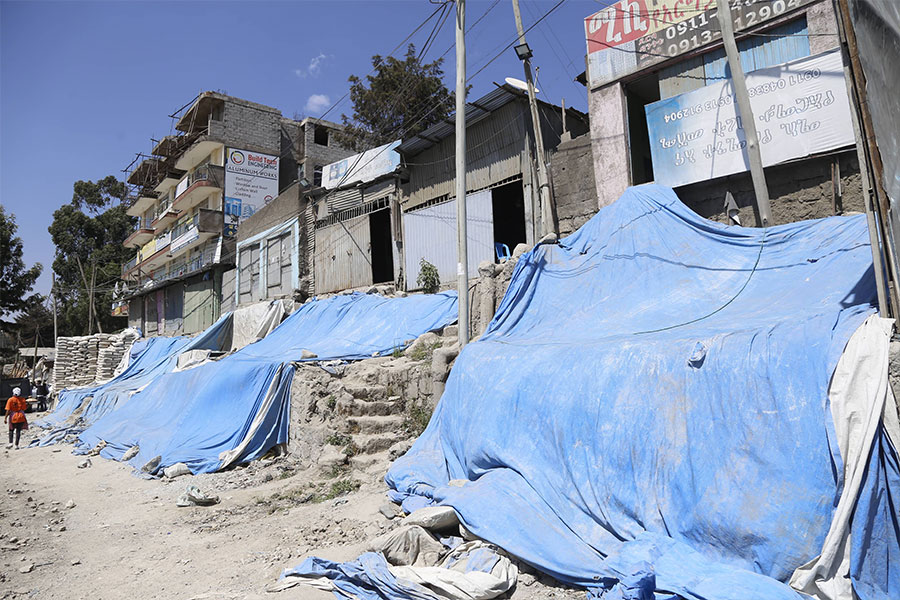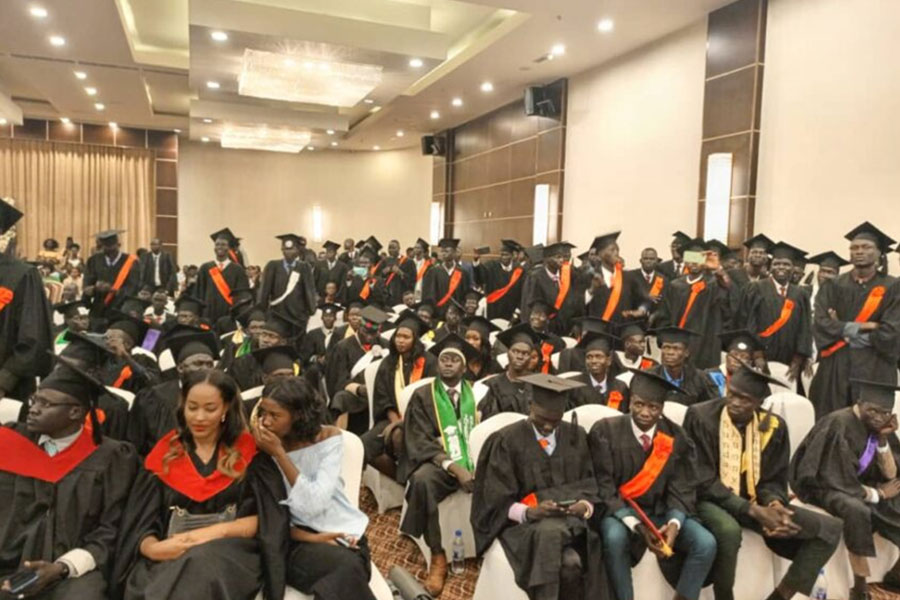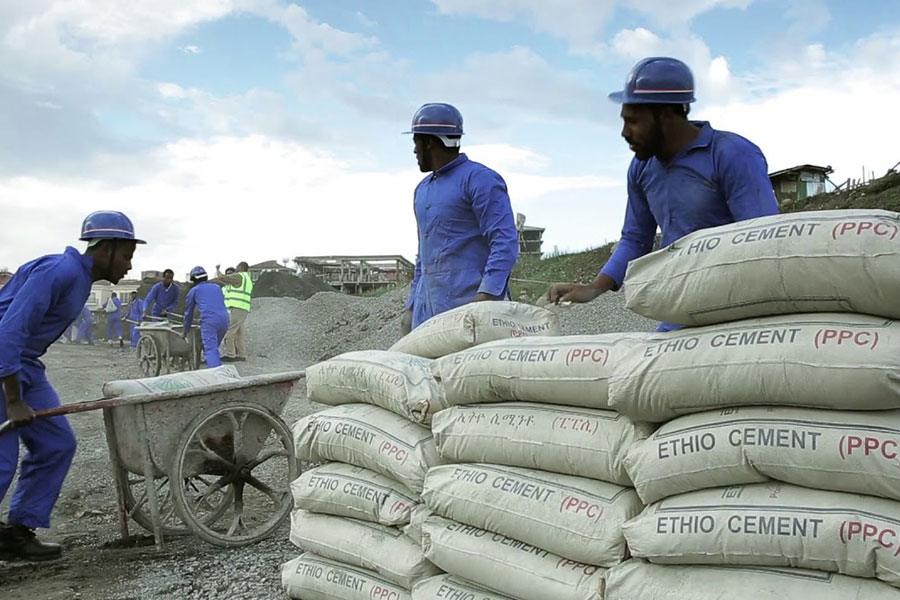
Radar | Mar 23,2019
Dec 25 , 2021
By SAMUEL BOGALE ( FORTUNE STAFF WRITER
)
Close to 300 freight trucks heading to ports in Djibouti have been stranded at the Dewele and Galafi border checkpoints beginning last week due to disagreements with the authorities over a mandatory requirement to transport cement to the Grand Ethiopian Renaissance Dam (GERD).
The now-defunct Federal Transport Authority has been assigning quotas to cross-border freight transporter associations to ferry cement from plants to Guba, where the dam is erected in the Benishangul-Gumuz Regional State. Truck owners were paid 292 Br a quintal. On average, each association is expected to assign up to five trucks for cement transportation each week before it receives waivers to go elsewhere.
Authorities at the Ministry of Transport & Logistics, which has taken over the Authority's mandate, have ordered the trucks at the checkpoints to stay put after they drove almost 600Km from Modjo Dry Port.
“It's a national project that can’t be ignored,” said Alemayehu Welde, director of the office in charge of licensing cross-border operators at the Ministry of Transport. “The dam can’t be stalled for lack of transportation when there are trucks in the country.”
Alemayehu says his office came up with the idea of bounding the trucks to get them to consent to the agreement.
One of the associations with some of its members’ trucks stranded at the checkpoints is Kokeb Africa Cross-Border Freight Transport Association, which has over 200 active members.
"Members are less interested in the job,” said Engida Hailemariam, general manager of Kokeb Africa.
Some trucks stranded at these checkpoints had already transported cement to the dam site. But they were forced to stop anyway as their respective associations had not met their quota, according to Dejene Luche, head of communications at the Transport Employers’ Federation.
The Federation Dejene represents was established in 2018 with 31 cross-border truck associations. There are over 50 associations under its wing, accounting for 70pc of the 13,000 freight trucks operating. A year ago, the news of the mandatory quota was received well by the associations and freight trucks owners as it pays more than their usual trips to Djibouti. Transporting cargo for the state-owned Ethiopian Shipping & Logistics Services Enterprise (ESLSE) was rated at an average fee of 156 Br a quintal then. The figure has since grown to 226 Br.
“Members of my association were happy when receiving the quota of up to five trucks a week, taking it as a service to the nation,” said Engida.
Despite having to travel nearly 100Km less and being paid higher fees, many freight trucks owners gradually lost interest in transporting cement to the dam site due to the delays in the loading and unloading process and stringent security procedures. Dejene says it would take the trucks around three weeks on average to complete a single trip transporting cement to Guba.
"It would have remained attractive had they managed to ease loading procedures and hasten the security escort process for trucks," he said. “The trucks could make around three round trips to Djibouti over the same period."
Officials acknowledge the issues.
Alemayehu says they are getting paid an additional tariff considering the delays, which are caused due to procedures meant for their own safety and security.
Some associations began to sign the agreement at the end of last week.
In the future, when trucks assigned to transport cement fail on their duties, the truck owners and not their respective associations will be suspended from providing transport services.
PUBLISHED ON
Dec 25,2021 [ VOL
22 , NO
1130]

Radar | Mar 23,2019

Viewpoints | May 23,2020

Fortune News | Aug 21,2021

Commentaries | Jun 12,2021

Commentaries | Aug 29,2020

Viewpoints | Mar 07,2020

Radar | Jul 28,2024

Fortune News | May 24,2025

Commentaries | Jun 22,2024

Fortune News | Oct 01,2022

Dec 22 , 2024 . By TIZITA SHEWAFERAW
Charged with transforming colossal state-owned enterprises into modern and competitiv...

Aug 18 , 2024 . By AKSAH ITALO
Although predictable Yonas Zerihun's job in the ride-hailing service is not immune to...

Jul 28 , 2024 . By TIZITA SHEWAFERAW
Unhabitual, perhaps too many, Samuel Gebreyohannes, 38, used to occasionally enjoy a couple of beers at breakfast. However, he recently swit...

Jul 13 , 2024 . By AKSAH ITALO
Investors who rely on tractors, trucks, and field vehicles for commuting, transporting commodities, and f...

Jun 28 , 2025
Meseret Damtie, the assertive auditor general, has never been shy about naming names...

Jun 21 , 2025
A well-worn adage says, “Budget is not destiny, but it is direction.” Examining t...

Jun 14 , 2025
Yet again, the Horn of Africa is bracing for trouble. A region already frayed by wars...

Jun 7 , 2025
Few promises shine brighter in Addis Abeba than the pledge of a roof for every family...